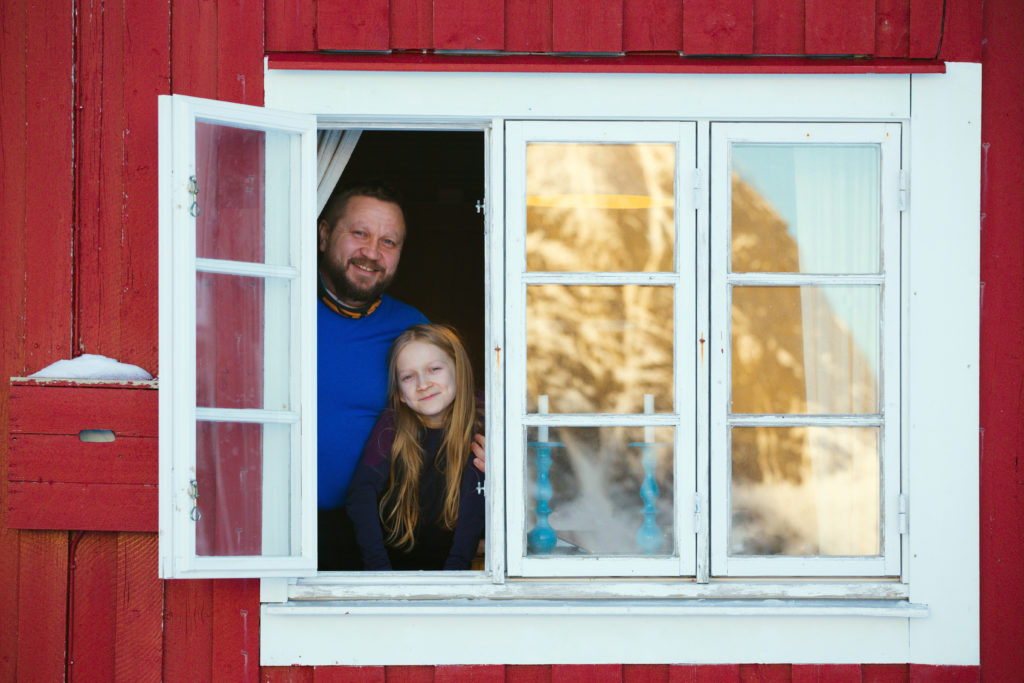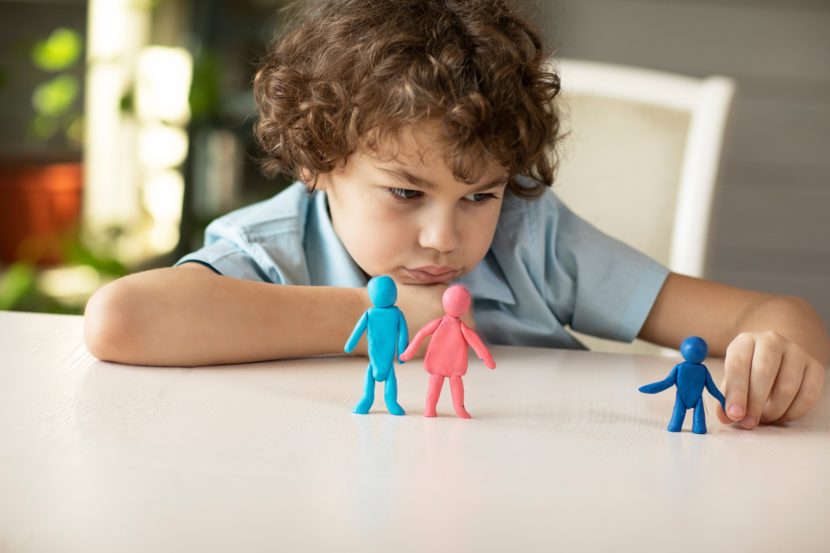The Norwegian Child Protection Services, commonly known as Barnevernet, has been embroiled in controversy for over a decade due to its practice of removing children from their parents. This common practice, subjected to strong criticism by the international community, is not limited to any particular group since it often involves even the most vulnerable members of Norwegian society, such as single mothers and immigrants. Moreover, disturbing data reveals that by the end of 2016, a staggering 15,820 children and young people were placed outside their homes precisely by the Barnevernet service itself (Skanland H. M. 2018).
What is Barnevernet and how does it operate?
“Barnevernet” is a Norwegian word for “child protection.” It essentially refers to the Norwegian Child Protection Services that have a purpose to provide care, support, and protection to children who may be in vulnerable or at-risk situations. The agency was established in 1992 and enjoys ample funding from the government. They have branches in every Norwegian municipality, and they follow a child-centered and welfare-focused approach based on the principles of the United Nations Convention on the Rights of the Child (Skivenes M, 2023).
The service should prioritize the well-being and rights of children in vulnerable situations and their aim should primarily be to support families, prevent issues early on, and provide appropriate care to ensure children’s safety and development. As such, Norway’s Barnevernet is also authorized to remove the child from their parents if they suspect a child is suffering (Christopoulou D, 2018).

Although Norway stands out as one of the few countries to have integrated the Convention on the Rights of the Child into its national law, it seems that the country is moving away from its child-first approach (Skivenes M, 2023). Norway’s child protection service mostly stands out today for frequently removing children from parents using coercion, surpassing any other country.
Statistics show that out of every 1000 children placed in foster care, about 10.1% of children are taken away, and around 71% of these removals happen without the consent of their biological parents. In comparison, Germany and Sweden have much lower rates, with only 9% and 10% and 8.2% and 26%, respectively (Bennett S, 2016).
Challenges and controversies surrounding Barnevernet
Norway’s inclusive and benevolent social welfare system, providing essential services like healthcare and education, has contributed to the country’s increasing cultural diversity over the years. Consequently, the criticisms directed at the child protection system stem from two primary issues: the absence of relevant evaluations and the overlooking of cultural differences in cases involving “child removal” (Apari F. S, 2022).
Unlike many other countries in the world, Norway has taken a firm stance against corporal punishment, making it illegal. While immigrants to Norway may be unaware of this law, it’s essential for them to understand the legal implications. Disciplining a child with physical punishment can lead to serious consequences, such as a social worker investigation triggered by an anonymous tip for child abuse, and in some cases, even the removal of children from their families without prior warning, which some might consider as a severe measure (Christopoulou D, 2018).
Consequently, Barnevernet is often accused of swiftly removing children from families, especially targeting single parents and refugees. The agency allegedly coerces parents into voluntarily surrendering their children, leading to the majority of cases where parents don’t get their children back. They are also criticized for not prioritizing efforts to reunite children with their biological parents, often leaving children in foster care until they reach adulthood. Moreover, parents who publicly criticize Barnevernet or share their stories online often face retaliation, including threats of never seeing their children again (Bennett S, 2016).
Exploring Barnevernet’s (mal)practices
According to BBC reports in 2018, Barnevernet stated that most of the children were taken away from their parents due to a ‘lack of parenting skills’ (Firstpost, 2023). In recent times, high-profile cases have been making headlines, shedding light on the concerning trend. These incidents have exposed critical flaws in the system, with tragic consequences, as seen in the heart-wrenching case of a Palestinian Shatha Al-Barghouti, where a child’s life was lost to alleged suicide (Euro-Med Human Rights Monitor, 2019).
In 2016, the child protection agency removed two children from a Norwegian mother’s care after she sought their assistance in placing only her 6-month-old daughter under their guardianship. Both children were placed in foster families, and tragically, the older child experienced sexual assault. The mother went to report this to the police and Barnevernet, but they didn’t resolve the issue, nor did they return the children to their mother. Instead, the mother was punished with a hefty fine of $47,000 and 10 months in prison (Daily Sabah, 2016).

One day, social services also took Shatha and two of her brothers from school due to concerns about their treatment by their parents. The family was only allowed to visit their children every six months under strict supervision, and they couldn’t speak to them in their mother tongue. These difficult circumstances took a toll on the children’s mental well-being, and one of them even attempted to escape during a visit. Sadly, just before Shatha was allowed to return to her family at the age of 17, she was found dead in her room under unclear circumstances (Rimawi E, 2019).
Again in 2018, Barnevernet found itself in the middle of a scandal because of the 56-year-old psychiatrist convicted of downloading child abuse images. In this gruesome case, the convicted psychiatrist had admitted to downloading nearly 200,000 pictures and over 12,000 videos depicting the sexual abuse and exploitation of children, some of which showed infants being raped by adult men. In the span of four years, the same psychiatrist played the role of an expert assessor, going to parents’ homes and recommending children for care (BBC, 2018).
Strong criticism aimed at Barnevernet’s violation of children’s rights
The alarming realities are difficult to ignore. Norway’s child protection system has been criticized by various organizations and experts, including the Norwegian Institute for Human Rights (NIM), which described it as the “worst in class.” The Children’s Ombudsman, the Norwegian Inspectorate, and the National Audit Office have all raised concerns about serious failures in implementing the Child Protection Act. In practice, families are forcibly separated, and children end up being adopted by other families, despite the Act’s aim to work with cooperation (DCT, n.d.).
The European Court of Human Rights (ECtHR) doesn’t support Barnevernet violation of children’s rights either. They criticized Barnevernet for lacking justification for child removal, as well as not complying with the requirements for family reunification (Skivenes M, 2023). In 2021, the court passed judgments against Norway, with six of them finding the country guilty of violating human rights in child protection cases. Out of a total of 65 ECtHR judgments against Norway, 43 have resulted in convictions (Malinowski H, 2023).
In 2023, an Indian movie was released depicting the struggles of an immigrant mother whose children were taken away by the authorities without a specific reason. It highlights the concerns surrounding Norway’s child protection service and the need for greater transparency and accountability in its decisions. By bringing this issue to the international stage, the movie hopes to spark a conversation about the rights of parents and children, prompting positive changes in the country’s child welfare practices (Hasan S, 2023).
Safeguarding children’s rights in Norway
When addressing issues related to child protection and welfare systems like Barnevernet, it is essential to approach the matter responsibly and consider human rights and international norms. International human rights organizations should monitor and investigate child protection practices in Norway and promote dialogue with Norwegian authorities. Diplomatic channels, petitions, and open letters can be used to convey these messages and urge for reform.

At Humanium, we stand for children’s rights, believing that every child deserves a family, a safe home, the right to protection and access to education, among others. We are deeply concerned about the disturbing realities surrounding child protection, such as those involving Barnevernet in Norway.
One way we are actively making a difference is by raising global awareness about the challenges faced by children and families involved with child protection systems. We believe that every child deserves a safe and nurturing environment, free from harm and injustice. You can join us in making a positive impact by donating, sponsoring a child, or volunteering with us.
Written by Lidija Misic
Bibliography:
Apari Firdevs Saader (2022), Norway’s child protection body under heavy criticism. Retrieved from Anadolu Agency at https://www.aa.com.tr/en/europe/norways-child-protection-body-under-heavy-criticism/2595620. Accessed on July 30, 2023.
BBC (2018), Norway backs down in child protection scandal. Retrieved from BBC at https://www.bbc.com/news/world-europe-45637040. Accessed on July 30, 2023.
Bennett Steven (2016), Secrets and lies: Inside Barnevernet. Retrieved from Barnefjern at http://www.barnefjern.org/secrets-and-lies-inside-barnevernet/. Accessed on July 30, 2023.
Christopoulou Danai (2018), How Norway’s Child Welfare Service Is Creating World-Wide Controversy. Retrieved at Culture Trip at https://theculturetrip.com/europe/norway/articles/how-norways-child-welfare-service-is-creating-world-wide-controversy/. Accessed on July 30, 2023.
Daily Sabah (2016), Norwegian mother cries for help after 6-year-old daughter sexually assaulted in foster care. Retrieved from Daily Sabah at https://www.dailysabah.com/europe/2016/12/01/norwegian-mother-cries-for-help-after-6-year-old-daughter-sexually-assaulted-in-foster-care. Accessed on July 30, 2023.
DCT – Democracy Centre For Transparency (n.d.), Human rights violations in Norway. Retrieved from DCT at https://dctransparency.com/human-rights-violations-in-norway/. Accessed on July 30, 2023.
Euro-Med Human Rights Monitor (2019), Norway Should Immediately Investigate the Mysterious Death of Palestinian Shatha Al-Barghouti. Retrieved from Euro-Med Human Rights Monitor at https://euromedmonitor.org/en/article/3075/Norway-Should-Immediately-Investigate-the-Mysterious-Death-of-Palestinian-Shatha-Al-Barghouti. Accessed on July 30, 2023.
Firstpost (2023), What is Barnevernet, Norway’s controversial Child Welfare Services in spotlight after Bollywood film? Retrieved from Firstpost at https://www.firstpost.com/explainers/what-is-barnevernet-norways-controversial-child-welfare-services-in-spotlight-after-bollywood-film-12311062.html. Accessed on July 30, 2023.
Hasan Saad (2023), Mrs Chatterjee vs Norway: The real story behind an Indian mother’s fight. Retrieved from TRT World at https://www.trtworld.com/magazine/mrs-chatterjee-vs-norway-the-real-story-behind-an-indian-mother-s-fight-66230. Accessed on July 30, 2023.
Malinowski Henryk (2023), Barnevernet – a troublesome side of the Norwegian state. Retrieved from TVP World at https://tvpworld.com/68748841/barnevernet-a-troublesome-side-of-the-norwegian-state. Accessed on July 2023.
Rimawi Ehab (2019), Who killed Shatha Barghouti? Retrieved from Wafa Agency at https://english.wafa.ps/page.aspx?id=e3Jyvwa111393171120ae3Jyvw. Accessed on July 30, 2023.
Skanland Haslev Marianne (2018), Statistics and generalisations about the CPS Barnevernet. Retrieved from Marianne Haslev Skånlands hjemmeside at http://www.mhskanland.net/page62/page534/page534.html. Accessed on July 30, 2023.
Skivenes Marit (2023), Wrong direction for the Norwegian child protection? Retrieved from Centre for Research on Discretion and Paternalism at https://discretion.uib.no/concerns-about-changes-in-norwegian-child-protection/. Accessed on July 30, 2023.


